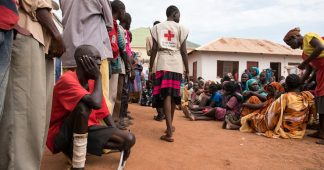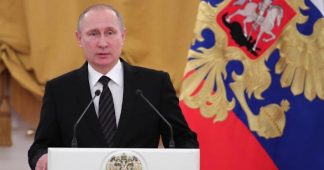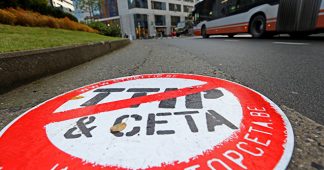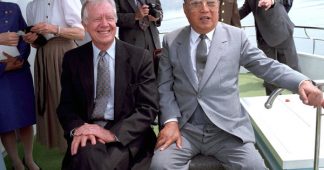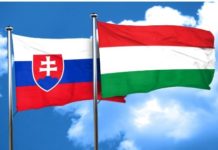Government, rebels agree on a setting up a transitional government, decide to hold elections in 36 months
June 28, 2018
A glimmer of hope has emerged that the civil war in South Sudan, now in its fifth year, will see an end after a peace agreement was secured on Wednesday, June 27, between two warring parties. The agreement was signed by South Sudanese President Salva Kiir and former Vice-President Reik Machar who, after falling apart with Kiir, has been heading the rebel force SPLM/A-IO.
The two sides have agreed to a permanent ceasefire by June 30, and to form within the next four months a transitional unity government, in which power will be shared by the warring parties. The government will be in power for 36 months by the end of which, according to the agreement, elections will be announced in which all political parties will be allowed to participate.
The agreement was signed in Khartoum, the capital of Sudan from which South Sudan had seceded in 2011. It was secured under the mediation of Sudanese President Omar al-Bashir. It stipulates that the “government of South Sudan, in collaboration with the government of Sudan, shall immediately rehabilitate” a number of damaged oil fields identified in the agreement, in order to resume and restore oil production to previous levels. With South Sudan’s secession, Sudan lost three-quarters of its oil fields.
The agreement states: “All the outstanding issues related to the oil sector, particularly on the cost of the oil field rehabilitation, shall be technically assessed and economically valued by the relevant authorities of South Sudan and Sudan respectively.”
However, “the deal does not provide the immediate resumption of oil production because the SPLM-IO rejected this idea saying this step should happen after the signing of a comprehensive political settlement,” Sudan Tribune reported.
The ceasefire is expected to take effect within 72 hours of signing of the agreement, by when “the parties shall agree on all the ceasefire arrangements, including “disengagement, separation of forces in close proximity, withdrawal of allied troops, opening of humanitarian corridors and release of prisoners of war and political detainees.”
Apart from agreeing on a self-monitoring mechanism, the signatories have invited the member states of the African Union and the Intergovernmental Authority on Development (IGAD) “to deploy the necessary forces to supervise the agreed permanent ceasefire.”
The agreement also stipulates that policies to implement the disarmament of the civilian population will be agreed upon. It is estimated that between 1.9 million to 3.2 million small arms were in circulation in areas that now form part of South Sudan. A third of this was under civilian possession. With the civil war that followed soon after independence, the percentage of arms in possession of civilians may have increased
The signatories have agreed that the security arrangements that will be adopted, “shall aim at building a national army, police and other security organs of an all-inclusive character that shall be free from tribalism and ethnic affiliations.”
The sharing of power in the new transitional government, as envisioned in the Revised Bridging Proposal prepared by IGAD earlier this month, requires that the President and the Vice-President who will be in charge of the economic cluster be chosen by the incumbent government. The other important portfolio of the First Vice-President who will be in incharge of the governance cluster, will be nominated by SPLM/A-IO.
The Third Vice-President, in charge of the services delivery cluster, will be jointly nominated by “other parties and entities”, namely the South Sudan Opposition Alliance (SSOA), Former detainees (FD) and of Other Political Parties (OPP) – all three of whose representatives have signed the agreement. President Kiir had previously refused to share power with SPLM/A-IO Chairman Reik Machar.
The signatories have committed to conclude an agreement on the Revised Bridging Proposal “as soon as possible and before closing the current Khartoum Round of Talks.” Once the agreement is secured, a “pre-transitional period” of 120 days will commence, in the course of which a transitional government will be formed.
Previous attempts to secure peace have failed to stop the civil war, which left tens of thousands dead, plunged the country into famine, and displaced more than four million people, which is the largest exodus in the continent since the Rwandan civil war in 1994.
The Khartoum agreement has been signed “at a time when the security situation in parts of South Sudan continues to deteriorate, marked by violations of the Cessation of Hostilities Agreement of December 2017, with killings of civilians and other atrocities,” UN Chief António Guterres said in a statement issued through his spokesperson.
“He therefore, welcomes the parties’ renewed commitment to redouble their efforts in the interest of peace,” the spokesperson said.

